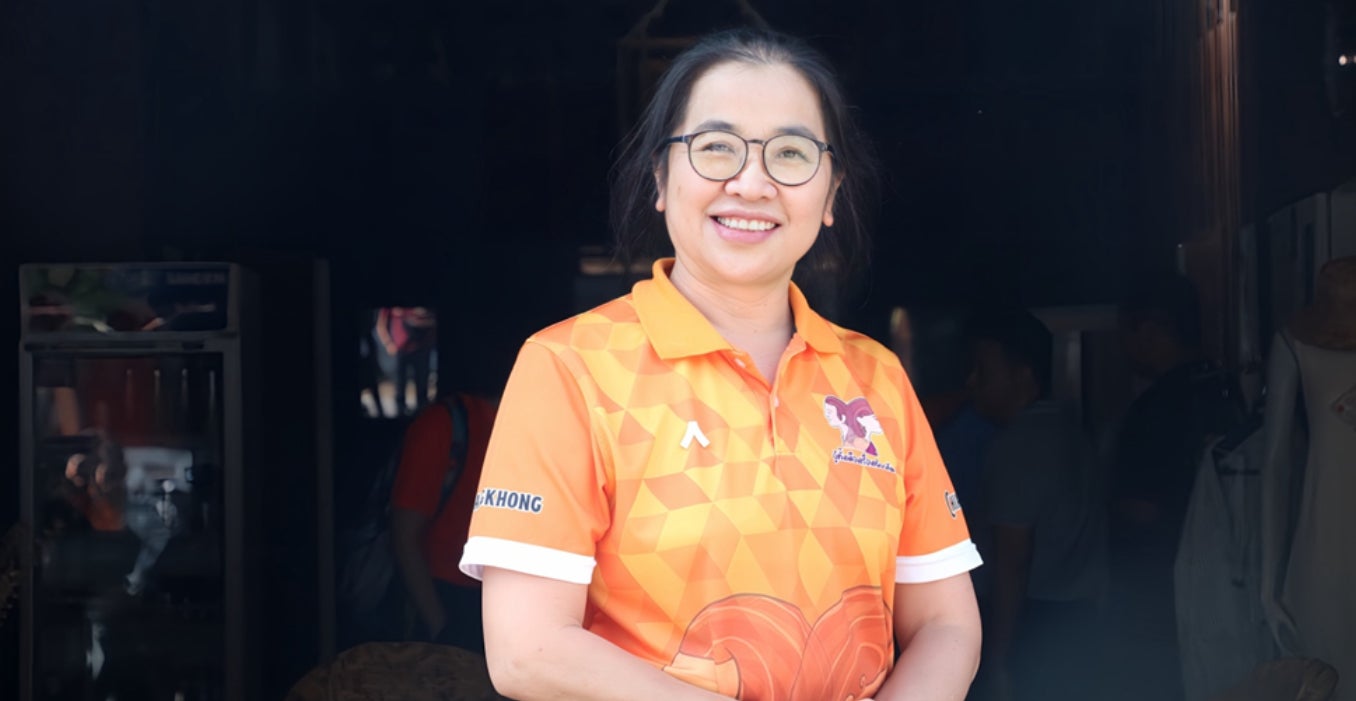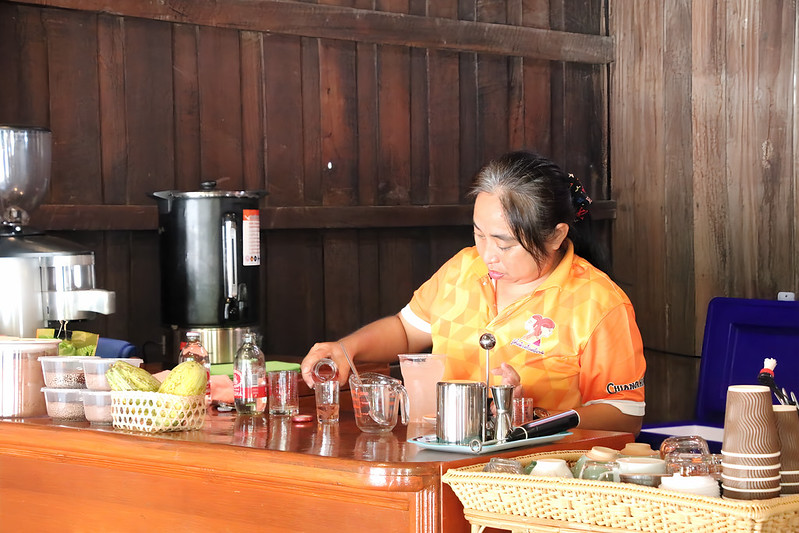In the words of Nunnaree Luangmoi: “Besides selling products, we’re an educational hub for women”
Date:
Authors: Poompat Watanasirikul and Kwankao Wongpinijwarodom

Nunnaree Luangmoi is Director of the Women’s Economic Empowerment and Learning Centre (WEE Centre) in Chiang Khong District, Chiang Rai, Thailand and founder of the Center for Girls Foundation. The WEE Centre supports women’s economic empowerment, particularly for women from Hmong and Lahu ethnic groups. It provides education and training, especially on producing clothing representing their rich cultural heritage, creating sustainable income opportunities that boost their financial stability.
![]()
Gender inequality is deeply ingrained in the North. Girls often don’t go to school after sixth grade, as parents expect them to marry young, start a family and do domestic work. By the end of sixth grade, I didn’t go to school anymore and started working. But I still wanted to study, so I enrolled in non-formal education.
I lived in an area where child prostitution and trafficking were common. I met workers from a women’s rights foundation who were doing research, and I was inspired by their project. So, in 1997, I established the Center for Girls in my hometown to prevent girls from being trafficked by helping them develop life skills. We continued our activities until 2012, when I realized that the community was self-sufficient. I wanted to work where people still needed help, so I came to Chiang Khong.
There were laws, but no enforcement. We worked to help victims of violence, especially children, going against those who abuse them, including influential people. I felt unsafe at first, but I was never afraid. I was beaten, punched, and threatened. I got discouraged, but I never backed down. I continued to fight for women and children’s rights.
We still face issues sometimes, but with experience, I know how to handle it. Now there are strict laws and a team to help.
Chiang Khong is an area where often ethnic groups don’t have legal status, are undocumented and lack access to governmental services. During the pandemic, many families lost their income and undocumented women faced many challenges. We learned about their problems and discussed with women’s group leaders how each of us could contribute and get funds or support.
We found out that UN Women was already working in this area, so we proposed our project. UN Women saw the importance of our work and has supported us to this day. When UN Women worked with us to open the Centre in 2022– something we’d been trying to do for so long – we felt that our work was finally being acknowledged. It was like a dream come true.
Besides funds for personal protective equipment during the pandemic, UN Women funded our occupational training. Ethnic women already had crafting expertise, but they hadn’t added value or fully developed their products to fit market demands, so we provided them with knowledge, skills and training. We also provided financial support to help women who lost their jobs become self-reliant.
One of our biggest challenges is the culture and the values here, some of which are too rigid and affect women negatively. For example, women are discouraged from becoming leaders and married women are barred from returning to their parents’ home. Women are harmed by these beliefs, so we are advocating for change. We developed the ‘Take Your Daughter Home’ project to help women who want to divorce and reunite with their family. We’re also doing research on preventing child marriage.
A lot has changed during my time in Chiang Khong. Gender used to be a considered a ‘women’s issue’ but now people discuss gender roles openly. I’m impressed by this because I’m not from Chiang Khong. I’m just an outsider, but I can make a difference here. I’m very proud of that.
We still need support on advocacy. I want the public and policymakers to know that what we are doing is valuable and important. Most importantly, existing policies need to be applied so that our communities can benefit from them too.
At the WEE Centre, besides selling products, we’re an educational hub for women, especially on finances and savings. We work with women on mapping necessary and unnecessary expenses.
We conduct our workshops and activities in villages, even though they aren’t far away, because for undocumented women, leaving their homes can be risky. They could be arrested. Many also shoulder childcare and other responsibilities. They have more chances to learn when we go to them.
We also have an agreement with the WEE Centre in the South and are collaborating on producing footwear from waste. In the future, we’re planning on creating a network for women from the North and the South together to learn from each other and share experiences.
My goal is for the women of Chiang Khong to build a strong and self-reliant community that can run the Centre and come up with activities that benefit women, their communities, and future generations.”
